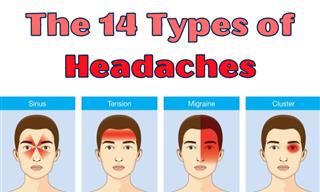For decades, doctors have noted that men have a higher risk to develop cancer than women. Men have a one in two chance of getting a cancer diagnosis, whereas women have a one in three chance - says the National Cancer Institute (NCI). Even when you exclude lifestyle factors like smoking and alcohol, men are still more likely to suffer from most types of cancers.
What makes men more susceptible to cancer than women? Recent research suggests that a variety of factors, including hormones, genetics, and differences in the immune system are involved. Read on for details.
Cancer Risks Differ in Men and Women

Previously, most differences in cancer risks were attributed to bad habits and lifestyle choices. But a recent long-term observational study at the National Cancer Institute reveals that underlying sex differences in men and women play a bigger role than previously thought. For instance, even with smoking and drinking ruled out, men have a 10.8 times higher risk of esophageal cancer than women.
Cancer Risks Compared
The researchers examined the data from the National Institutes of Health-AARP Diet and Health Study, which continued from 1995 to 2011.
There were 171,274 male and 122,826 female participants in the age range of 50-71 years. The study examined 21 types of cancer that occur in organs shared by both men and women, including:
- Lungs
- Thyroid
- Liver
- Pancreas
- Skin
- Kidneys and bladder
- Gallbladder
- Head and throat - larynx, neck, mouth, esophagus, and oropharynx (back of the throat)
- GI tract, including the stomach, rectum, anus, colon, gastric cardia, and biliary tract.

Over the course of the observation period, the researchers recorded 17,951 new cancer diagnoses in male participants and 8,742 in female participants. The authors of the study then examined the incidence of specific cancers in men and women. In the majority of cancers, men had a greater risk, namely:
- Esophageal adenocarcinoma - men have a 10.8 higher risk than women
- Cancer of the gastric cardia - 3.5 times higher risk in men
- Laryngeal cancer - 3.5 times higher risk in men
- Bladder cancer - 3.3 times higher risk in men.
Men also had a higher incidence of cancers of the lungs, skin, liver, biliary tract, colon, and rectum. Only gallbladder and thyroid cancer rates were higher in women.
Related article: Man Flu: Do Men Have a Weaker Immune System than Women?
What Account for the Massive Difference?
The reason why men are more likely to suffer from cancer remains an open question. Doctors believe that several factors play a role: genes, differences in immune systems, and sex-related biological mechanisms. Researchers also believe that high levels of testosterone or low levels of estrogen and progesterone in men may play a role as well.

The lead author of the study, Prof. Sarah Jackson, a research fellow in the Division of Cancer Epidemiology and Genetics at the National Cancer Institute, points at the differences in genes: “The X chromosome contains several tumor suppressor genes. Because they have two X chromosomes, females may have higher expression levels of these genes than males, who only have one.”
Another risk factor is height, Jackson noted to Verywell Health. “This may be because taller people have more cells than shorter people, or it could be that height is a marker for growth hormone levels,” she noted in an email. To put it simply, the taller you are, the more cells you have. And the more cells you have, the higher your risk of a cell mutation leading to cancerous growth, statistically speaking.
Hopefully, researchers will be able to examine all of these possible risk factors and use their findings on the sex differences in cancer rates to develop new treatments. But for now, dear gentlemen, all you can do with this information is be mindful of the risks. Follow up with all the cancer screenings your doctor recommends, maintain healthy body weight, and exercise regularly - recommends the NCI.
H/T: Verywell Health
 Go to BabaMail
Go to BabaMail



























